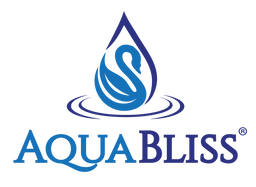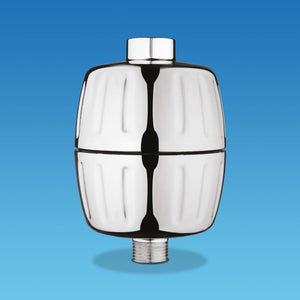Bone char is a controversial material that plays a significant role in various industries, from sugar refining to agriculture. Derived primarily from the bones of cattle and other animal bones.
Bone char is created through a process of carbonization, where animal bones are heated in the absence of air. This process leaves behind a black, porous material rich in carbon and calcium phosphate.
The bone char is then activated to enhance its surface area and adsorption properties, making it a relatively poor result when using it to remove or reduce impurities from different substances.
What is Bone Char?
One of the most notable uses of bone char is in the sugar industry, particularly in the production of refined sugar. Bone char acts as a decolorizing agent, adsorbing impurities and pigments from sugar solutions to produce the desirable white color we associate with refined sugar.
This process is especially common in the refining of cane sugar and beet sugar. However, not all sugar is processed using bone char. Raw sugar, brown sugar, and coconut sugar, for example, typically do not undergo this treatment.
Applications of Bone Char
Bone char’s versatility extends far beyond sugar refining, finding valuable uses in both agriculture and various industrial applications.
Agriculture:

- Soil Amendment: Bone char is highly regarded in agriculture for its ability to improve soil fertility. The calcium phosphate content makes it an excellent organic fertilizer, providing essential nutrients like calcium and phosphorus that are crucial for plant growth.
- Enhancing Crop Yield: By enriching the soil, bone char supports healthier, more robust crops. This is particularly beneficial in developing countries, where farmers utilize bone char to boost crop yields and promote sustainable agricultural practices.
- Sustainability: The use of bone char in agriculture contributes to sustainable farming by recycling animal bones and reducing reliance on synthetic fertilizers, which can have adverse environmental effects.
Industrial Applications:
- Water Purification: Bone char is effective in removing heavy metal ions, such as lead and arsenic, from drinking water. Its high surface area and porosity enable it to adsorb a wide range of impurities.
- Air Filtration: In air filtration systems, bone char is used to capture pollutants and improve air quality. Its adsorptive properties make it particularly useful in industrial settings where the control of airborne contaminants is crucial.
- AquaBliss Commitment: While bone char is beneficial in many industrial applications, AquaBliss ensures that their shower filters do not contain bone char. Instead, they use superior filtration media, prioritizing quality and safety for their customers.
Environmental and Ethical Considerations
Although bone char is derived from animal bones, which are byproducts of the meat industry, the carbonization process is energy-intensive, raising questions about sustainability and waste management.
On the positive side, the recycling of animal bones into bone char contributes to a circular economy by reducing waste. However, ethical considerations arise from the use of animal bones, particularly for vegans and individuals concerned with animal welfare.
Alternatives to bone char, such as granular carbon from plant sources or synthetic materials, are available and offer similar benefits without the ethical concerns.
Environmental Impact:
The environmental impact of bone char production and use is a critical aspect to consider, particularly in an era where sustainability is paramount.
While bone char offers certain environmental benefits, its production process also presents challenges that must be addressed.
- Energy-Intensive Production: The production of bone char involves carbonizing animal bones at high temperatures, a process that consumes significant amounts of energy. This raises concerns about the sustainability of its production, particularly in terms of the carbon footprint associated with the process.
- Resource Recycling: On the positive side, bone char production contributes to resource recycling. By repurposing animal bones that would otherwise be discarded, the process supports a circular economy and reduces waste. This recycling aspect is a notable environmental benefit, as it helps mitigate the impact of animal agriculture on the environment.
- Sustainability in Agriculture: When used in agriculture, bone char promotes sustainable farming practices. It acts as an organic fertilizer, reducing the need for synthetic alternatives that can harm the environment. This makes bone char a valuable resource in sustainable agriculture, particularly in regions where environmental conservation is a priority.
Ethical Considerations:
The use of bone char is not without ethical concerns, particularly in today’s increasingly conscientious consumer market.
As people become more aware of where their products come from and how they are made, the ethical implications of using animal-derived materials like bone char come to the forefront.
- Animal Welfare: The use of animal bones to produce bone char inevitably raises ethical concerns, particularly among those who advocate for animal rights and welfare. For vegans and vegetarians, the idea of using animal-derived materials in food production or other applications can be troubling.
- Consumer Choice: Ethical concerns also extend to consumer choice. Many consumers prefer to avoid products processed with bone char, seeking alternatives that align with their values. This has led to a demand for bone char-free products, particularly in the sugar industry, where vegan-friendly options like beet sugar or organic sugar are favored.
- Alternatives to Bone Char: As awareness of these ethical considerations grows, there is increasing interest in alternative materials that can replace bone char. These alternatives, such as granular activated carbon derived from plant sources, such as coconut shells, offer a more ethical option without compromising effectiveness in applications like filtration and purification.
By understanding these environmental and ethical considerations, consumers and industries can make informed choices about the use of bone char. For companies like AquaBliss, this means committing to high-quality, ethical products that do not rely on bone char, ensuring that their customers can enjoy peace of mind along with superior performance.
Health and Regulatory Aspects

Health and safety standards are also important when considering the use of bone char, especially in food production. Regulatory bodies, including those in the European Union, have established guidelines to ensure that bone char used in sugar refining and other applications is safe for consumption.
However, consumers who prefer to avoid products processed with bone char should pay close attention to labeling, as refined sugars processed with bone char are not always clearly indicated.
Opting for beet sugar or organic sugar, which are typically not processed with bone char, can be a practical choice for those seeking alternatives.
Health Implications
Bone char, widely used in industries such as sugar refining and other filtration products, it has raised questions regarding its health implications. While bone char is effective in purifying substances by removing impurities, it is essential to consider both the potential health benefits and concerns associated with its use.
Health Benefits:
- Water Purification: One of the primary health benefits of bone char lies in its ability to purify drinking water. This is particularly beneficial in global regions where water contamination is a significant public health concern.
- Reduction of Impurities: In the sugar refining process, bone char is used to decolorize and purify sugar, removing impurities that may affect the quality and safety of the final product. This process results in refined sugar that is free from unwanted chemicals and substances, potentially reducing the risk of consuming harmful contaminants.
Health Concerns:
- Contamination Risks: While bone char is effective in removing impurities, there is a potential risk of contamination if the bone char itself is not properly processed. If not adequately cleaned and treated, bone char could introduce pathogens or unwanted substances into the products it is used to purify. This underscores the importance of stringent quality control measures in the production and use of bone char.
- Dietary Restrictions: For individuals following vegan or vegetarian diets, the use of bone char in food processing can be a concern. While it doesn’t directly impact health, the presence of an animal-derived substance in products like sugar may be problematic for those adhering to strict dietary practices.
Safety Standards and Regulations:
- Regulatory Oversight: The use of bone char in food and water processing is subject to regulatory oversight to ensure safety. In the United States, the Food and Drug Administration (FDA) regulates the use of bone char in sugar refining, ensuring that it meets safety standards for food-grade materials.
- Consumer Awareness: It is also essential for consumers to be aware of the presence of bone char in products. Proper labeling and transparency from manufacturers can help consumers make informed choices, particularly those with dietary restrictions or ethical concerns about using animal-derived products.
While bone char offers benefits in the purification processes, its use must be carefully managed to avoid potential health risks, and adherence to safety standards is critical to ensuring consumer safety.
Labeling and Consumer Awareness

In an era where consumers are increasingly conscious of what they consume and how products are made, accurate labeling and informed choices play a crucial role in ensuring product safety and aligning with personal values.
This is particularly important when it comes to products that use bone char, an animal-derived material, in their manufacturing processes.
Importance of Labeling:
- Transparency: Proper labeling is essential for transparency in the marketplace. It allows consumers to make informed decisions based on their dietary preferences, ethical considerations, or health needs. When products contain bone char, clear labeling ensures that consumers who avoid animal-derived ingredients—such as vegans and vegetarians—are aware of what they are purchasing. This transparency helps build trust between manufacturers and consumers.
- Health and Safety: Labeling also plays a critical role in health and safety. Products involved in food processing or water filtration must adhere to strict safety standards. Accurate labeling provides consumers with information about the product's ingredients and any potential risks, such as contaminants or allergens, ensuring that they can avoid products that might negatively impact their health.
Identifying Products Containing Bone Char:
- Ingredient Lists: One of the most straightforward ways to identify whether a product contains bone char is by examining the ingredient list. In the sugar industry, for example, bone char is often used in refining, but refined sugar itself may not explicitly list "bone char" as an ingredient. Instead, consumers should look for terms like "refined sugar" or "processed sugar" and consult the manufacturer's information for more details on the processing methods used.
- Product Labels and Certifications: Many manufacturers now provide detailed information about their processing methods on product labels or websites. Certifications such as "vegan" or "organic" can be indicators that bone char was not used in the product’s processing. Vegan certifications, in particular, are useful for identifying products that adhere to strict animal-free standards.
- Manufacturer Information: For more clarity, consumers can reach out directly to manufacturers. Many companies provide detailed information about their sourcing and processing practices upon request. Contacting customer service or checking the company’s website can provide insights into whether bone char or other animal-derived ingredients are used.
Consumer Advocacy:
- Educational Resources: Consumers can also utilize educational resources and advocacy groups that focus on transparency and ethical sourcing. Organizations that promote veganism or sustainability often provide lists of brands and products that align with ethical and environmental standards, helping consumers make informed choices.
Ultimately, accurate labeling and consumer awareness are vital for ensuring that products meet personal and ethical standards. By understanding how to identify bone char in products and utilizing available resources, consumers can make more informed decisions that align with their values and health considerations.
Making Informed Choices
Informed choices are crucial when selecting products such as sugar or water filtration systems. While bone char has its uses, we understand that many of our customers prioritize ethical, environmental, or health considerations.
That’s why at AquaBliss, we are committed to offering products that align with these values. Our shower filters, for instance, do not contain and are designed without bone char, ensuring they meet our high standards of quality and transparency.
If you’re interested in exploring our range of superior filtration systems, visit our shower filter page to learn more. For any questions or further information, please don’t hesitate to contact us. We’re here to help you find the perfect solution that meets your needs and values.







